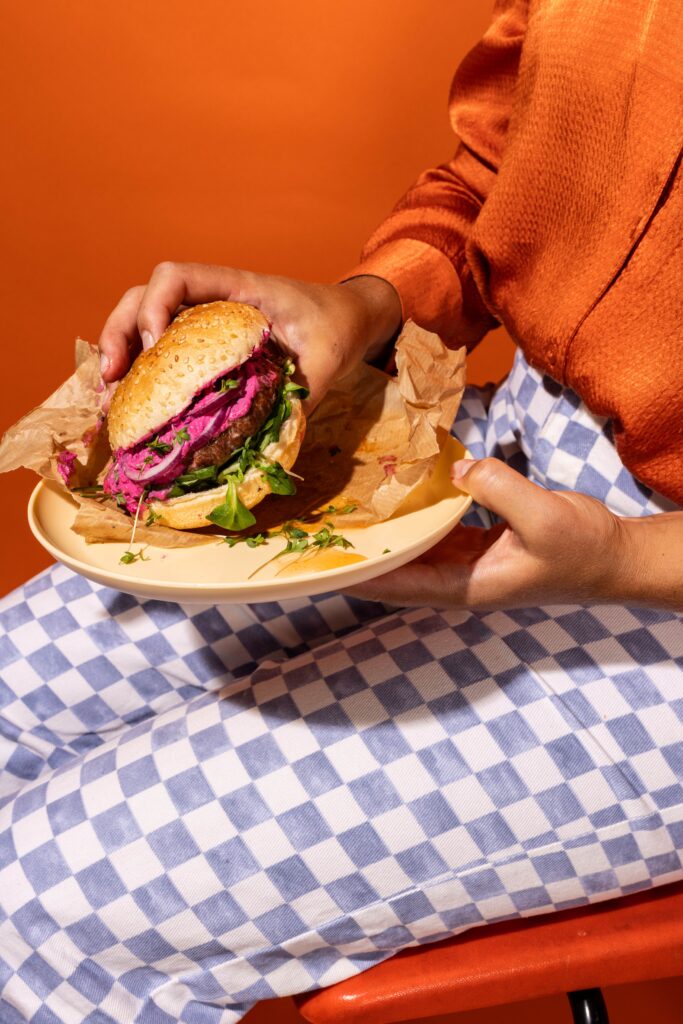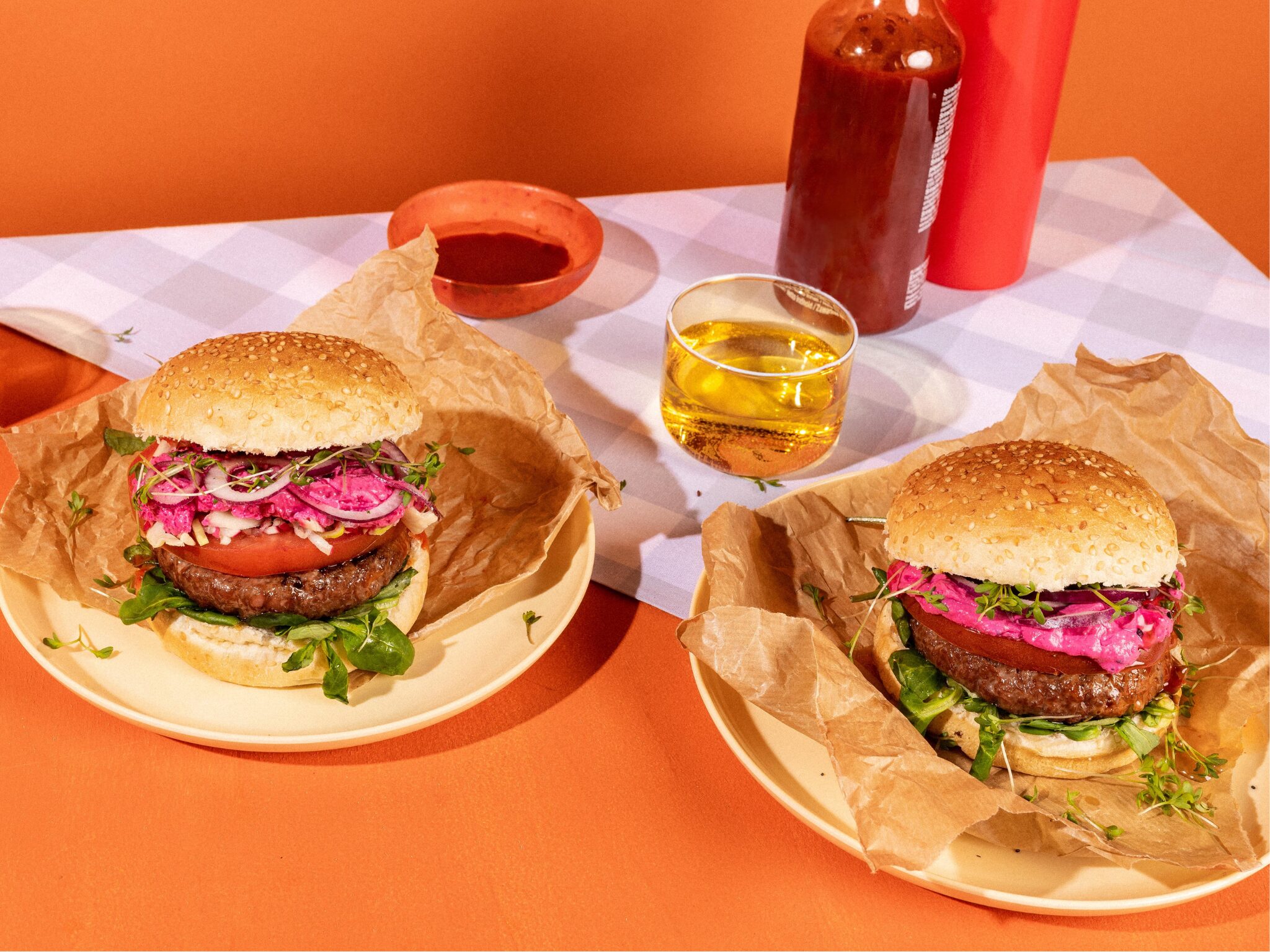Revyve Debuts Egg Replacer from Upcycled Brewer’s Yeast for Better Plant-Based Meat
4 Mins Read
Dutch alternative protein startup Revyve is launching a powdered egg substitute made from spent brewer’s yeast to enhance plant-based meat formulations.
Revyve will debut its latest microbial protein innovation at next month’s IFT First Expo in Chicago (July 14-17), using upcycled brewer’s yeast (a beer industry byproduct) to make an egg replacer.
The ingredient boasts the same binding and emulsification qualities eggs possess, but aims to remove the supply chain volatility, animal abuse, price fluctuations, and allergy risks associated with conventional eggs.
The non-GMO vegan egg substitute comes in a powdered format, and like the rest of Revyve’s ingredients, it’s labelled as “yeast protein”. The product is intended as a clean-label alternative to E-numbers – artificial additives as well as naturally occurring substances added to CPG products for textural functionality, such as methylcellulose – for use in plant-based foods like meat analogues.
But for any product to replace eggs effectively, it needs to compete on costs. Revyve says its egg replacer is at price parity with chicken eggs, thanks to its patented tech. “We reap the typical functionality benefits of microbial and fermented protein, but by working with yeast – which is widely available as a co-product – we don’t use any fermentation,” CEO Cedric Verstraeten tells Green Queen. “This way we can minimise capex requirements and production costs.”
Giving burgers their shape, sizzle and colour

Revyve relies on what is virtually an endless supply of yeast (given the vast amount of beer produced annually), and this eschews the need to grow any of its own biomass.
“First, we wash the yeast with an optimised set of operations, to make sure we remove all beer and brewing-related off-notes,” explains Verstraeten. “Then we use our proprietary gentle process to micro-mill the yeast and separate the valuable protein and fibre to optimise firming, gelling and foaming capabilities.”
Co-founder and CTO Edgar Suarez Garcia suggests that the company’s USP lies in this “unique combination of functional proteins and fibres”. “Manufacturers appreciate that when paired with other ingredients, Revyve can eliminate the need for methylcellulose, which has numerous functional and labelling downsides,” he says.
“We have taken yeast functionality to the next level. Products manufactured with Revyve single-ingredient yeast proteins take on true-to-form textures. Revyve offers exceptional heat-set gelling, binding and emulsification,” he adds.
Research has highlighted the importance of texture and mouthfeel for meat analogues. A 2022 survey by certification body V-Label found that the texture of plant-based meats is as important as their conventional counterparts for 75% of consumers, but only about 60% were actually satisfied with the former.
“When burger producers ask how Revyve performs, we explain that it behaves like egg whites,” says Suarez Garcia. “When cooked in a patty mixture, Revyve becomes firm yet springy, forming a binding network around the other ingredients.”
He continues: “Burgers retain water and oil at hot and cold temperatures; they brown and sizzle on the grill and hold their shape when flipped and sandwiched in a bun.”
Verstraeten suggests that Revyve’s egg replacer will appeal to manufacturers looking for nutritious, affordable alternatives to eggs to up their products’ eco credentials, and those on the hunt for clean-label replacements to chemical additives for texturising.
Revyve’s egg replacer stands out from ‘low-functioning’ plant proteins

There are already a ton of plant-based egg replacement powders on the market, but Verstraeten believes Revyve’s use of yeast protein – which enables it to offer the same functionality as eggs – sets it apart. “Plant proteins typically have low functionality, so plant-based egg replacers usually require a mix of ingredients and additives to mimic the functionality. By working with yeast protein, we can achieve this with a single ingredient,” he explains.
Some of Revyve’s customers have already launched products using its ingredient in the burger segment, but the egg substitute can be used for foods beyond patties too. “Our high-performance product can be used in a versatile range of applications including nuggets, dairy products and baked goods,” says Verstraeten.
The startup is now working on CPG products with its egg replacer in the sauces, appetisers and bakery segments, which are slated for launch in the second part of the year.
While there are multiple products from independent producers on the market already, scaling up its production will allow Revyve to support large manufacturers as well. “We have demonstrated our process at industrial scale, and are currently building a large-scale commercial production, which will start up later this year,” reveals the CEO.
The facility is its key priority over the next 12 months, with the aim of “making Revyve a key ingredient across the food industry”. Concurrently, the company is also raising capital for its next scale-up milestone, which “will expand our capacity further and allow us to reach positive cashflows”. Last month, it secured €8M in new financing to support its growth.
A number of businesses are making proteins from spent brewer’s yeast. Germany’s ProteinDistillery uses biomass fermentation to turn the beer byproduct into egg-white-like ingredient Prew:tein, and France’s Yeasty has discovered a way to remove the bitterness from brewer’s yeast, producing a flour for alternative protein, pet food, and nutrition products.
Meanwhile, Belgian beverage giant AB InBev – the world’s largest beer manufacturer and parent company of Budweiser, Stella Artois and Michelob – is also developing alternative proteins from spent brewer’s grain.



